|
And that's just the beginning: https://www.cshl.edu/the-non-human-living-inside-of-you/
Barbara McClintock discovered viral activity of our DNA in the 1940s. In 1983 she received a Nobel Prize for that discovery: a lot of our genes are from viruses. Since 2014, we’ve known that at least TEN-TO-ONE there are MORE microbial cells in the human body than human cells: https://web.archive.org/.../faq-series/5122-humanmicrobiome. Now, keep in mind that we’ve known for almost eighty years that a portion of the DNA in those human cells is virus DNA. The math is pretty clear. 91% or more of our cells are microbes. Of the remaining 9% or less that are human cells, half of their DNA is viral. Every tissue in the body is replaced often, with the longest outliers lasting about seven years, except for some optic, possibly cardiac and definitely cerebral cortex cells. Altogether, those ever-persisting and never-replaced cells are fewer than twenty billion. There are about ten trillion human cells in you, and one-hundred trillion microbe cells. Two-hundredths of 1% of the human cells (the ones that survive anyway) remain with you indefinitely. Inside these cells reside the viral DNA as well. And, as they die off, and as the rest of you is replaced again every seven to ten years, you are increasingly less "you" than ever. What we think of as the ongoing physical human “us” is about half of two-hundredths of 1% of 9%. And that infinitely miniscule fraction of "humanity" becomes vanishingly small through the course of our lives. All of a sudden, several religious ideas become palpable truth. In Christian theology, our body is not actually ours. In Hebrew theology, our body is not actually ours. In certain forms of Buddhism and Hinduism, sometimes this is communicated as “the self is an illusion.” Across many ideologies, this concept that we must take care of the “temple” implies that whatever we call “us” is a mix of caretaking and the practices for which we must take care. There are no objects. And there is certainly nothing in a fixed frozen snapshot. I like to talk about us as shifting-states or wending-paths. There is no object. We cannot objectify the human. To talk about ourselves as unchanging objects is both heretical sin and unscientific nonsense. As a physical specimen, my body is less than half of two-hundredths of 1% of 9% of what it was when I was in my twenties. And the same could've been said in my twenties about my teens, and the same in my teens about my adolescence. My skeleton may remain similar ratios; but the cells have gone. All are replaced. Most are bacteria. Half of the DNA in the rest is virus. Every behavior, decision, activity, and even thought has a physical consequence of changed genetic expression. We flip switches in our DNA all the time. Even changes in our sleep alter our genetic expression and which mRNA we will use: https://www.pnas.org/content/110/12/E1132. We activate and deactivate microbes and viral genes all the time as well. DNA shifts. Which mRNA we use and how we use them in transcription is a moment-to-moment changing landscape. Just a drink of alcohol makes you activate tumor necrosis factor in the brain and a litany of other mRNA alterations: https://www.ncbi.nlm.nih.gov/pmc/articles/PMC6875773/. None of it was ever frozen in time. And half of your DNA was always virus DNA. Catch up to the 1940s at least. You weren't born this way. You aren't destined to never change. Things don't have to stay the same. All of us are always changing... well, except for that less-than half of two-hundredths of 1% of 9%. But you really want a mind-bender? The minerals and substrates and atomic particles which comprise those persistent cells have also come and go, degraded, bonded, and more. Change isn't just coming. Change was here long ago.
0 Comments
It will change.
Here’s a photo from 2009 where I could carry a relatively lean 260. Ten years prior I was slightly less lean at 160. What’s ideal? It’s hard to say. And it will change. I can no longer stomach that much eating, apportion that much time to train, or focus that much energy on personal fitness goals. At the time, I wasn’t a father, and I didn’t own businesses. I would’ve told you then that another 10-20lbs of muscle and 5-10lbs less fat would have been ideal. I was close to my ideal of the time. Ten years prior I would've told you cutting down to 150 might have been an ideal body fat. But I wasn't even close to trace body fat at 160. I've been AT trace body fat OVER 220lbs. “Ideal” changes. You have a set of givens; and you have a list of priorities. That sets the tone for “ideal.” It’s not the other way around. People fixate on a weight or a size or a look. But “ideal” for all of these is bound by your genuine desire to table other pieces of life. And, as I've learned, getting super lean and fit sometimes requires a large INCREASE in body weight. What’s your ideal build? As far as you can go while being happy and balanced. Watch your step. You may be closer than you think. The American College of Cardiology has long acknowledged that reduced sodium intake does NOT have a scientifically established benefit: https://www.acc.org/.../the-hazy-relationship-between...
Rather, low-salt recommendations are based on an inductive argument from several presupposed (and now refuted) assumptions. It may surprise the reader, but there has been no confirming evidence for the salt-cardiac risk hypothesis since 1944: https://www.amjmed.com/article/S0002-9343(17)30508-9/pdf. And even then, the strongest argument showed potential benefit for only 25% of those with already-existing hypertension. In rigorous science, we find 7 salt knowns: 1.) life doesn’t exist without sodium 2.) sodium transport IS cellular function 3.) low salt is associated with early death 4.) low salt worsens diabetes** 5.) low salt worsens cholesterol*** 6.) low salt worsens stress hormones*** 7.) low salt precedes cognitive decline**** ** https://pubmed.ncbi.nlm.nih.gov/21289228/ *** https://www.who.int/.../review.../salt-blood-factors/en/ **** https://cjasn.asnjournals.org/content/13/3/366 What we know: 4,000-6,000mg per day = no issue Over 7,000 = possible risk for certain populations Under 3,000 = HIGH RISK * https://pubmed.ncbi.nlm.nih.gov/22110105/ Less than 3 grams of sodium per day is associated with increased risk of heart attack and stroke. In 2010 I experienced a turning point wherein more and more clients of mine came from clinical backgrounds. In part, I attribute this to a single question I began more aggressively asking during initial meetings: “do you read your own journal?” It came to me one day when I met with an internal medicine doctor who mentioned something about the benefit of statins. I said, “but now we know there is no significant benefit.” She gave me one of those you-know-nothing looks, followed by a similarly-toned upbraiding. I was a little surprised, because there had just been a massive review in the Annals of Internal Medicine and JAMA on no established benefit from statins EVEN IN HIGH RISK POPULATIONS: https://jamanetwork.com/.../jamaintern.../fullarticle/416105. The only thing I could think to say was, “do you read your own journal?” I had a printed copy of the summary in my drawer, handed it to her, and saw the color drain out of her face. In the summer of 2012 I spent time with a number of gracious clinicians who let me shadow their work for a day or more. One cardiologist curiously said, “you know, there has never been a peer-reviewed, published paper on ANY benefit for ANY dietary supplement, right?” I’ve seldom in my life been stricken silent by a bigger admission of ignorance. I was embarrassed for him. Since I was his guest, how exactly could I ask him if he has read his own journal? It's a damning question, obviously; and I got the sense his ego couldn't handle it. That year, the American Journal of Cardiology published a paper specifically showing that Vitamin D supplementation lowers risk of cardiovascular disease: https://pubmed.ncbi.nlm.nih.gov/22071212/. In fact, the Journal of Investigative Medicine confirmed these results the week he said this: https://pubmed.ncbi.nlm.nih.gov/22534630/. Likewise, omega 3 supplementation showed up in cardiology-related research that whole year. Not only recently, but for over a century there have been Nobel Prizes awarded for peer-reviewed findings on supplements. Vitamin C and Nitric Oxide have no evidence? We better alert the Nobel committee. Piles of NIH grants have been awarded in order to do precisely what this cardiologist said has never been done. "Really?", I pressed him, doing my best to pretend I was learning something new from him. He doubled down, "oh yes; NEVER." The reader may not catch this right away. But aside from being totally incorrect and uninformed, that style of "argument" is a well-studied fallacy called argumentum ad ignorantiam (the argument from ignorance or appeal to ignorance). It comes up often in metaphysical debates. sometimes criticized as the god of the gaps or conversely as the evolution of the gaps or multiverse of the gaps with regard to cellular life, abiogenesis, pre-Planck time, and other pieces of prehistory which we can't directly observe, predict, test, or prove/disprove. More succinctly, it can be put into a concise sound byte: I've never seen or accepted evidence for X; therefore, there is no evidence for X; moreover, therefore, X is proven false. It can appear persuasive to those who've never studied formal logic; but it's an empty pseudo-reasoning. I certainly wasn't going to spend the effort showing him his basic mental faculties were faulty. Instead, since he doubled down on the literature claim, I placed the pressure inside his framework, "which peer-reviewed publication DISPROVED the benefit of which supplement?". Checkmate. His gurgling, bubbling stammer said it all. Opinions are nice and all. Even reading the literature is nice, although insufficient. We have to apply rigor in our analytical thinking as we drive down into known mechanisms. And in known biological and biochemical mechanism, there are no debates on the benefits of dietary salt or the risks from low-sodium intake. Good luck trying to have a heart beat or form a new memory in the absence of sodium. A heart beat IS sodium transport. A brain cell action potential IS sodium exchange. Low Salt = Early Death If seat belts work, why air bags?
If air bags work, why brakes? If brakes work, why defensive driving? If defensive driving works, why power steering? If power steering works, why do we care about visibility? If windshields help, why road signs and traffic lights? If road signs and traffic lights work, why guard rails? Please, apply more cognitive horsepower. The cult of oversimplification is gaining membership at a staggering rate. Idolatry and the worship of simple labels has a stranglehold on a lot of Westerners. Please, rescind your membership. Risk, danger, possibility and probability coexist in complicated relationships. No one thing or groups of measures takes risk to ZERO. No one thing or group of measures takes risk to 100%. The discussion isn’t about the risks of seat belts weighed against the freedom of no seat belt. It’s about the degree of total risk reduction by implementing a matrix of safety controls. Six years ago I joined Facebook to find that once someone has committed to a moniker and label, he or she doesn’t care to engage with the complexity of life anymore. “I’ve got my label, thanks - no additional thinking needed”, seems to be the message. Every communication has to be distilled into a purposely inaccurate oversimplification like the if-then statements above. Digging deeper into causal relationships isn’t just uninteresting to people, it’s offensive, because they fear they might have to change labels. Have you considered NO label? Have you considered two labels instead of one? Have you never felt like one label in the morning and another in the evening of the same day? “I’m a vegetarian.” “I’m a see-food dieter.” “I’m a capitalist.” “I’m a democrat.” “I’m a 'fill-in-the-blank'.” I don’t know. I’m not so sure these and other labels are moving us forward. Maybe there was a time. But I’m unconvinced. They seem more like shackles than freedom. One, most people don’t actually know what the terms mean. Two, the remaining minority don’t care. Yet people will fall on their swords for their chosen idolatrous label. I don’t drink alcohol. I’m not abstaining. I just don’t care for it. Debates over alcohol regulation or laws pull no emotional reaction out of me, because I have no label toward it. None. I don’t care. At all. We could raise the drinking age to 25 or lower it to 18, change breathalyzer tests, permanently revoke drivers licenses on first offense, whatever. I feel nothing. Impose a tax. Change sales rules. I don’t care. What I can tell you is I can listen to and entertain any side of any discussion regarding alcohol, because I just don’t have a label I worship. I’m not in a cult with regard to drinking. I don’t vilify it. I don’t love it. It seems that the Prohibition merely increased the prevalence and wanton abuse. So, banning something which we know has detrimental effects, though seemingly a good idea, doesn’t seem to work very well. Sadly, the complexity of life requires uncomfortable and nuanced management of risks. One blanket label doesn’t get it done. I yearn for people to get themselves to this with response to other topics. I pray for it. I wish for it. I hope for it. I realize the very simple if-then statements above are tempting. The simple memes are tempting. The oversimplification of risk and benefit is tempting. Fatalism is tempting. Idolatry is tempting. Othering your “opponents” is tempting. But man, it just isn’t getting people anywhere. When I work with people on coaching, we cover the very uncomfortable aspects of their labels. Why? Because all I really care about is empowering them to find a pragmatic way forward. Labels hold people back. Thinking of themselves as a fixed product, a demographic chart, an identity designation, they’re stuck. They can’t move, by definition. That’s not joyful. Being stuck sucks. And we all know it. So, if we know that sticking to a fixed label doesn’t work well for our own personal health and fitness, why do we think it’s a great idea for society? People, we all know that we have trapped ourselves inside of a label at some point in life, and it was awful. “I used to think” is the greatest speech anyone ever makes. “I used to be.... but then I realized” is the greatest opener or closer to a sermon, motivational speech, commencement, civil rights proclamation, declaration, song or poem. Why, then, would it rationally follow that we need to impose simplified labels on others? Or broadly across society? We have to go the other direction altogether. How do we shrug off the chains of label? How do we shake off the weight of monikers? How do leave a life of idol worship? How do we liberate ourselves from simple if-then statements whose only purpose was to reinforce a narrative for our chosen label? Then, and only then, can we engage. Whether we are looking to better ourselves or help our fellow man better himself, a life obsessed with labels ain’t getting it done. This is a biological law. Only two nights of sleep disruption makes the majority of replacement cells turn into fat cells. Please share this post with the calorie-priests and all the assholes who keep telling people to just workout harder and diet harder.
I like toughness. But sadly, even really good takeaways from tough guys and gals on social media are tainted by the fact that MATH doesn’t give an F about them. People are dumb. They don’t know that we are constantly replacing cells. If 51% of new cells are fat cells, PLEASE share how more exercise and diet will make someone leaner. PLEASE. I am genuinely curious how “push harder” scales for people who are already pushed too hard. Don’t get me wrong. I like the David Goggins types of the world. Jesse Itzler reached out to me directly years ago to send me his book. The mental toughness message resonates. BUT then there’s science. Look at the IG post and swipe to the third panel. Optimal heart rate variability is 100. Optimal recovery is 100. This client was at 13 HRV and 1% recovery. Please tell her how she just has to push harder. Go ahead. Really. Tell us all how that makes sense. Yes. Weakness is a problem. In America, softness is a serious problem. I agree. That doesn’t mean that virtue-signaling of chronic exhaustion is the answer. That doesn’t mean the cult of imbalanced life is the bearer-of-truth. There is no negative caloric equation which can make an overstressed system better. Fight the science and math all you like. We have to be kind to our bodies. The biggest badge of toughness is taking a break and caring for self when the only thing you know is work harder. "Weight-Loss Is A Marathon, Not A Sprint" This was to be the title of a book written by one of my clients who passed away exactly three years ago this morning. Her health and fitness journey was one of the most difficult troubleshooting paths I’ve encountered. And I specialize in the difficult troubleshooting cases. She understood the lifelong fight to be better by some physical measure. Though her efforts were thwarted by a vast metastatic cancer, she was on to something which everyone needs to understand. There are almost zero long term success stories from rapid fat loss: https://www.elev8wellness.com/.../rapid-transformations.... I see million-follower-influencers talk about 4 or 8 week programs, and it’s obvious to me as a fitness-industry professional of two decades that they’re inexperienced. The average follower doesn’t know it. But rapid transformations are statistically destined to be long term failures. The most successful medically-supervised weight-loss clinics boast a 0% success rate as you track forward to 5, 10, 15 years: https://www.ncbi.nlm.nih.gov/pmc/articles/PMC5764193/. The reason, of course, is that every pop-fad fitness regimen focuses on immediate “results” during the beginning, rather than equipping people with tools for a life time. Anyone can lose weight when they’re in a forced labor camp on television, a supervised clinic, or with a surgically-altered body. But then what? What happens when you attempt to interface with real life? The top commercial weight loss programs and weight loss medical clinics and retreats are included in that statistic. These are BEST case scenarios. There are really solid ideas within some of these programs, wherein they focus on moving patients out of the guilt-shame spiral. In the end, however, NONE center on how to stop/reverse lean tissue loss; and so you won’t find their 10-15 year followup statistics published anywhere. Frankly, that weight-loss itself is the goal makes people miss the health and fitness big picture. Simply running down the body to achieve a lighter scale number incurs organ damage. I know. Those people whose health has been destroyed by all the popular programs become my clients. People who’ve gained autoimmune conditions, thyroid disrepair, chronic fatigue/stress and adrenal scarring - they don’t have it so easy anymore. I’ve worked with clients whose teenage eating disorder was still metabolically crushing their bodies decades later. Balancing fitness goals with the health downsides is like balancing two knives upright on each others’ blade edges. Becoming more healthy and fit has much more to it than simply losing a few pounds. Especially as we think about growing as an individual and creating a more healthy future, we have to have foresight. That’s a marathon, not a sprint. Personally, I don’t have seasonal allergies anymore, since focusing on anti-inflammatory nutrition. There’s data on how ketogenic diets reduce asthma: https://www.uni-bonn.de/news/083-2020. This has had a far more profound effect on my life than any cutdown experiment I’ve run. It’s taught me that resilience/recovery and aiming to quell systemic inflammation ought to be the centerpiece of a health and fitness effort. That is far more important and continually rewarding than a once-achieved 40lbs body weight drop. In fact, once you communicate to your body that it isn’t under constant threat, it can effortlessly lose 40lbs of unnecessary body mass. If chronic stress keeps signaling your brain and body that they’re under constant threat, why would they want to become a smaller animal? There is no overt survival advantage to being a smaller animal. Smaller animals are prey. Smaller animals are lunch. Recover. Become resilient. Always work at improving strength and physical capability. When you do these, you get leaner. You stay leaner. Or... Stress out. Run yourself down. Get weaker and reduce physical capability. When you do these, you get fatter. You stay fatter. Only two days of impaired sleep means 51% or more of the new replacement cells become fat cells. There is no math equation to make caloric restriction and caloric burn work here. That’s not Jonathan’s opinion. That’s physical LAW. That’s biology. That’s math. That’s incontrovertible science. Watch influencers closely. The ones who preach “push harder” don’t have any evidence as the timeline extends into the future. They give themselves autoimmune diseases. They put their health on a high interest credit card. Keep watching. The bill comes due. The bill always comes due. And they never manage the APR. They didn’t “get away” with anything as a youth; they just placed the payment on their physiological credit card; and now the bill collector is leaving eviction notices. Even people I respect, people who did teach us something about mental toughness or the human spirit, end up being hollow shadows of their former selves, taking acute organ damage so they can look back on a couple of photos where they were shredded. This doesn’t scale for the public. This doesn’t work. I know life-balance doesn’t sell. I understand. And maybe, for some, the 15 seconds of spotlight is worth it. Set a record. Write a book. Do the publishing tour. And pay the price later. By the time onlookers notice the trend, your broken body, your accelerating arthritis, your chronic pain, your LOSS of ability, it won’t matter. You made your name. You built your empire. The myth that people should just run themselves down persists. Your former self is the poster child, despite your present self being a testament to flawed methodology. Improvement doesn’t have a 3 or 6 or even 12 month time limit. But that isn’t sexy. That isn’t exciting. That takes incredible patience. That takes a marathon mentality. Weight-loss isn’t a sprint. It is. We just don't know to what degree exactly. With more tests, we can increasingly find out. One test means nothing.
In the fourth grade, I once received a C on my report card in spelling. Fortunately, that error was so large that I knew with total confidence that the teacher had made a mistake. I was a linguaphile since I was a tiny child. By fourth grade, it was difficult for me to imagine incorrect spellings for any words. As far back in that year as I could remember, I had received only perfect scores on each spelling test. Perfect. Not just good. Flawless. So, i approached the teacher. She showed me her gridded notebook, where she fastidiously recorded everything with great precision, pointed to my C, assured me that no mistake occurred, and closed the book. I asked her to open it up again. She did. We looked more closely and found that the rows and columns were so tiny that at the very end of the ledger she had accidentally switched my tabulation with a student whose last name landed them right above or beneath me in the notebook. The human eye, after all, can jump around when figures are right next to each other. The teacher apologized, corrected the mistake, and life went on. I wonder if the mistake hadn’t been so obvious and egregious if I or she would’ve ever known. What if I had a bunch of different test scores, some Bs, some Cs, and so on? If I hadn’t been so confident in my perfect scores, if I hadn’t been insistent, if she hadn’t been willing to question herself, what would have happened? And she was quite organized and rigorous. And this was such a straightforward process. I wonder if/how she handled the other student thereafter. Any test for which your blood is pulled is variant. That is, the same person will have different values the same day. The same laboratory, when conducting two tests, will have different values with the exact same sample. That’s to say nothing of insufficient draws, contamination of samples, expiry, or patient mix-ups. All of these happen all the time, by the way. It may shock some readers, but at least half of all blood draws give us questionable results: https://www.ncbi.nlm.nih.gov/pmc/articles/PMC5851398/. The result is stacked against “normative” outcomes, a statistical term, which itself begs various questions about objective value and analysis. This is a continuously-examined phenomenon in the world of scientific research. Reproducibility, reliability, and specificity are genuine terms to dig into the effectiveness of any process we use to evaluate the tests which we use to evaluate people. Re-read that. We have to evaluate the TESTS. And a lot of standard physical tests fail the evaluative benchmarks. Take iron for example. Iron and the carrier protein ferritin are THE most accurate blood tests in existence. Ferritin boasts a 99% accuracy and whopping 80% specificity rating: https://pubmed.ncbi.nlm.nih.gov/28043306/. The most accurate-specific test on earth is 99-80 when no mistakes were made. So we have to ask, what are we doing with lab tests? Are we evaluating the test’s accuracy and gathering many tests as a way to glean insights into health? Or are we taking lab tests as a sort of immutable divine revelation? One lab value every 6-18 months is not really how data collection works. You need more data to determine trends. The fact of the matter is that there is currently a reproducibility crisis in science, where the MAJORITY of published outcomes cannot be replicated by anyone: https://www.nature.com/.../1-500-scientists-lift-the-lid.... Some tests are incredibly reproducible (ie - tests for lead concentrations in blood are over 90% reproducible) while others never were (ie - cell size IgG tests). Before you pat yourself on the back or dread the meaning of a “bad” value, remind yourself that this is just data. One single DATUM is meaningless. Two are next-to meaningless. Three? Perhaps we’re learning something. 1,000? We might establish a provisional finding. And that is in HARD sciences. Some people hold up one-off psychological insights like Gospel; but the reproducibility in a SOFT “science” like most of psychology is so low as to question the whole field. As neuroscientists take over that field, a lot of our fatalistic beliefs about psychology are being annihilated. I mean, we’re reversing genetically-“determined” Alzheimer’s for Pete’s sake: https://tsailaboratory.mit.edu/news/. You think your cute little therapist quote is final? I’ve done a cholesterol panel three times in the same day with three substantially different results. And of course this is what should be. The body is in different states at different times. Most endocrinologists don’t even know that TSH is a useless lab without being paired with several others. Published MDs hire me and learn that WHEN you draw a testosterone lab in the day dictates the outcome. Nothing against them, but how many times have they evaluated a test? We asked our pediatric allergist how many times she’s sent the same sample from the same person as two different samples to check the reliability of her lab. She hadn’t even thought of it. Lol. I have evaluated accuracy and specificity of many tests, many times, sending separate same samples to the same lab and/or multiple labs. No single test means ANYTHING. Clients show me a CBC/CMP and think that means anything. No one result tells us anything with finality. Hell, the “normal” range for sodium is 138-142. You’re “normal”. So what? Let me help you out here: by the time any of these are in woeful territory, you’re in the hospital hooked up to tubes. Mid-stage kidney failure patients will often have sodium just below this level. End-stage (yes, I mean actively dying) kidney failure patients have sodium above this level: https://pubmed.ncbi.nlm.nih.gov/9146973/. You can lose 70% of your kidney function and land smack dab in the middle of “normal” on a CBC/CMP. If you want to understand health and fitness as a category over which you can control anything, you’re going to have to do more than a couple tests. You’re going to have to read a little. You’re going to have to ask questions. You’re going to have to gather data. I once had a very intelligent peer chirp at me for sharing one of my observational findings from over 45,000 hours of professional experience. Her contention? Her therapist disagreed. Ok. And? What makes your therapist’s singular opinion supersede my 45,000 hours of observational data? Maybe it does. Maybe it doesn’t. Where’s the data? Moreover, what makes your inexperienced therapist’s opinion supersede the many other opposing therapist opinions out there, the APA or the NAS? My dad was a clinical psychologist for over 40 years and disagreed with everything this girl’s newbie was saying. So what? Just do data gathering. None of these findings are final. Your test isn’t final. Your clinician’s insight isn’t final. My observation isn’t final. Lab tests aren’t final. Each is A DATUM. We need DATA. People seem to really struggle with saying, “so what?” Recently, a person with a congenital heart defect reached out to me. I can’t fit him in my schedule; but I could present him data. Sadly, on the other side of the equation, he received “bad” tests. Ok. So what? No action plan. The message he got? Fear. Fear. Fear. Ok. What are your clinicians telling you they’ll DO about the findings? The response he heard: Fear. Fear. Fear. Ok. What other tests can be done? And what will we DO with that information? Fear. Fear. Fear. ... pill... fear... nothing. Ok. Not my kind of science. But common. Gather data. Don’t place one DATUM on a pedestal as the Grand Vicar. And put lab tests in their proper context. 1 year ago today. Single leg dead w/ 325lbs x 5 (video here: https://www.instagram.com/p/CNSDFvsH4-D/). Nowhere to go and no distractions, every week was a nonstop outperformance of the prior. Also hitting lifelong PRs on lifts and Weightloss, my remote clients were running up wins like James Bond at the casino. It was a glorious feel-good time with momentum propelling our business into expansion, adding three more, promoting colleagues in their own startups, and taking our cross-country family RV trip. One of the best years of my life, possibly THE best. I got to school my kids 2 days/week (still going, lol). I spent about 167 dollars on gas for the year.
I realize that for many the circumstances were crushing. I’ve been there. 2008, the credit markets imploded as we launched a business. 2016, my co-venturers backed out while expenses ramped up. When we went through crippling uncertainty, though, there was no stimulus, no unemployment, no help... not even compassion from people whose careers I launched. There was no tax break, no delay in IRS filing, no PPP loans, no economic disaster relief, no grants. Not even a “sorry, man - losing your dream and not knowing if you’ll be able to take care of your family sucks.” Nothing. At. All. I know what challenge is. Most curious is how zero commutes and more free time than ever led to dramatic worsening of health in Americans. No judgments. I’m simply pointing out, AGAIN, that the calories-in/calories-out myth was annihilated. Most Americans gained an average of 29lbs, with 10% gaining over 50lbs during the vastest free time period in all of global history. Zero commutes, more free time, and insecurity (tightening of food purchase) led to a dramatic weight gain. Ok. Where are all the calorie priests? Use only calories to explain this. Only calories to explain how MORE TIME and LESS FOOD equals weight gain. It’s not about calories. It’s about stress and mindset. For the person confronting uncertainty, calories explain NOTHING. Stress and mindset explain everything. Hell, there was nothing to do but study and exercise. How did people not get smarter and fitter than all of prior human history? Let us put away the mythologies. Let us let go of the calorie fairytales. Let us acknowledge the centerpiece of stress and mindset. In so doing, may everyone enjoy a year of unrelenting victories. Remember that time I was shredded while obese on the BMI? Or those many other times when I was relatively lean while morbidly obese on the BMI?
Societal fixation on scale pisses me off. Americans lose an average of one pound of lean tissue per year after 25 years old or so. This IS physical capability. If, at 50 years old, you weigh about what you did at 25, you’re f***ed. You’re 50lbs fatter and less than half the athlete you were. Simple tasks like tying your shoes or going up a flight of stairs have become noticeably more difficult; and losing weight won't do a damn thing to improve that. It's not age, genius. It's that you threw away all of your muscle, tendons, ligaments, bone density, and connective tissue. Unless, of course, you’ve been training with weight lifting for the past 25 years. Then you’re ok. And you’re probably at a level of physical conditioning which could beat the crap out of your 25-year-old self. The average American needs to gain about 40lbs to have a fighting chance at weight loss. You can't get LEANer by NOT building LEAN tissue, especially when you've already lost 20-60lbs of LEAN tissue. Studies on weight loss are very clear that more than half of the tissue people lose when they're losing weight is lean tissue. You can't get LEANer by getting less LEAN. You can't get leaner by losing weight alone. Forget scale, please. Weight loss is associated with shortened lifespan; and repeated weight loss and gain and loss and gain destroys people's health, making them incredibly weak and incredibly fat, even if they're light: https://academic.oup.com/ajcn/article/75/5/840/4689397. How much do you deadlift? How fast can you sprint? If you want to fixate on a meaningful body composition indicator, what’s your waist measurement? According to the American College of Sports Medicine, an adult male has no business having a waist over 31.5 inches; and an adult female has no business having a waist over 27.5 inches. I don’t know about all that; but I do know that I’ve had a 27 inch waist at 225lbs. I have peers who clock in sub-32 inch waistlines while over 250. How and where you carry what type of weight matters. And the scale cannot give us that measurement. If you aren't diligently working to maintain or build lean tissue, you are getting fatter. There are a lot of people who are heavy but super lean. There are even more who are skinny-looking but super flabby. If you have no lean tissue while flabby, it is a difficult road; but the answer isn't weight loss. The answer is strength gain. Once you have some lean tissue and physical capability rebuilt, you can risk losing some while you burn the fat. You can't risk what you don't have to lose what will only grow as you get weaker. If You Want to Gain Weight, Follow The Weight-Loss Recommendations of Famous Fitness Influencers4/1/2021 A few years ago, I decided to educate myself on what popular fitness influencers were saying. I don’t follow these people, because every time I’ve seen any recommendations of theirs, they completely deviate from known science. Also, since I actually work in the fitness industry, I've spent my time... working. It didn't leave a lot of time to observe inexperienced influencers talk about their opinions. At the time I did this review, I looked for reposts or posts from people with 200k to 5 million followers. It was a sort of meta-analysis of the “literature” in my industry, if you will.
I’m not entirely sure how to explain the phenomenon. It’s as if top influencers just never worked full time in a large health and fitness facility. They tend to have no mentors and no evidence of observing many case studies. Largely, they’re young, inexperienced, with almost no background in coaching the hundreds to thousands of people which even a newer coach would have if he or she worked at a larger organization. As such, their recommendations for weight loss for the average person are friggin bonkers. The one guy was talking 400g of carbs per day for weight loss for someone around 200lbs. I just... *shaking my head* ... I don’t even know where to start. Maybe he’s never worked with a sedentary person. Maybe he’s never worked with broken metabolisms. Maybe he’s never worked with clients who aren’t on piles of stimulants and anabolic drugs. Maybe he has very few experiences with older populations. But this DOES NOT WORK even for someone like me with significantly higher-than-average lean tissue and activity. I know. I’ve tried it. Many, many, many times. It’s not as if all popular influencers are bad guys and gals. Though their websites look like a clickbait trap with “Buy It Now” links every other line, I don’t actually believe that they’re all clueless underhanded fakes or snake oil salesmen. In fact, the one guy making this outrageous recommendation above clearly does know a few things about exercise science. He seems like an otherwise genuine strength coach, focusing on intelligent practices for lifting technique. For LIFTING. For nutrition... go elsewhere, please. I’ve been thinking about and studying nutrition science for over 30 years. Professionally, this is a large part of my life of the past 17. And I have come to a point of ZERO ideology. I’m simply a pragmatist. Whatever works works. An average person whose activity is low MAY succeed somehow magically listening to these kooks. I’m open to that possibility. But the likelihood is very low. Possible, sure. Probable, no. Beware the ideologues. I mean, I get it. Young and inexperienced people find an approach and it becomes their TRUTH. In 1989 I picked up a textbook on nutrition, and that was my TRUTH. In 1994, I got a complete food counts index and food scale, and that was my TRUTH. In 1996, I ordered MuscleNow, and that was my TRUTH. The following year, I obtained a copy of Eat Right 4 Your Type, and that became my TRUTH. By the time I took Fundamentals of Health And Human Physiology in college (2003), my rigid nutrition beliefs were becoming nuanced. But think about that. That took almost 15 years to become more mature in dietary understanding. A lot of these famous influencers and online weight loss programs or applications are just now in their developmental journey where I was in the 80s. After I started this career, one of my first specialty certifications was in sports nutrition (2005). By that point, I wrestled truth away from “expert opinion” by just running my own experiments with glucometers and metabolic measurement masks. By 2012, I had over a dozen nutritionist certifications, but still decided to watch the entire USMLE1 medical lecture series, be in the pilot group for Precision Nutrition, and complete LTF’s Weight Loss Coaching cert. Nearly 10 years later, I can say firmly that none of those are my TRUTHs. They’re each valuable perspectives. They inform. 32 years into it, and I have no truth. I have only pragmatism. Every year I hear about some “new” fad, some “new” app, some “new” diet idea; and it always turns out to be something I ran experiments on 10-25 years ago. Why am I no longer doing it? Because each approach is incomplete. No one has THE truth in nutrition. There are many effective approaches. There is no single superior tactic which forever and always beats all others. Beware the ideologues. Beware the popular influencers. Beware the weight loss apps and online services. They grabbed onto a weight loss “truth” or fitness “truth” because they’re inexperienced and don’t know any better. In time, they too may grow. Give them time. But don’t give them your attention. |
Elev8 Wellness
|
LIVE. AWESOME.We offer the highest quality in personal fitness, nutrition, and mindset coaching, helping you achieve your fitness, health, wellness and performance goals no matter the obstacle. With virtual online training and private, in-studio training we make it easier to reach your wellness goals safely.
No more can't. No more not good enough. If you compete in a sport, let your mind no longer hold you back from being the greatest. If you don't, let your mind no longer hold you back from being the best version of you that you can be. Sign-up for a Tour Covid Screen Waiver Elev8 Waiver Become an Elev8 Instructor Space Rental |
6244 lyndale ave. s., minneapolis, mn 55423
|
© 2021 Elev8 Wellness LLC. All Rights Reserved. site map | contribute | SITE BY Sproute Creative

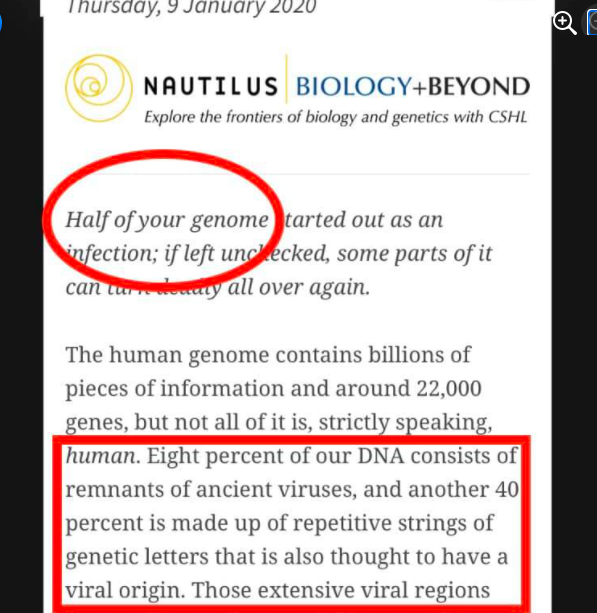
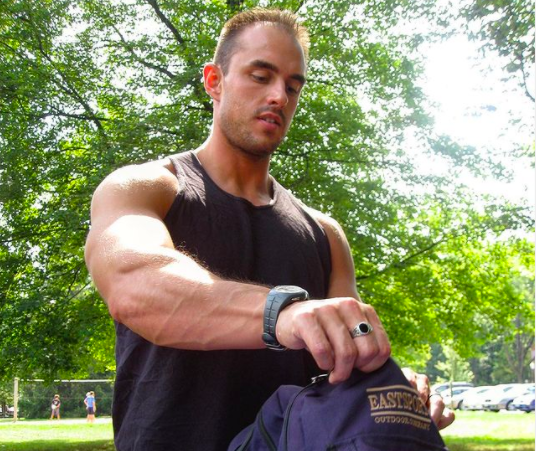
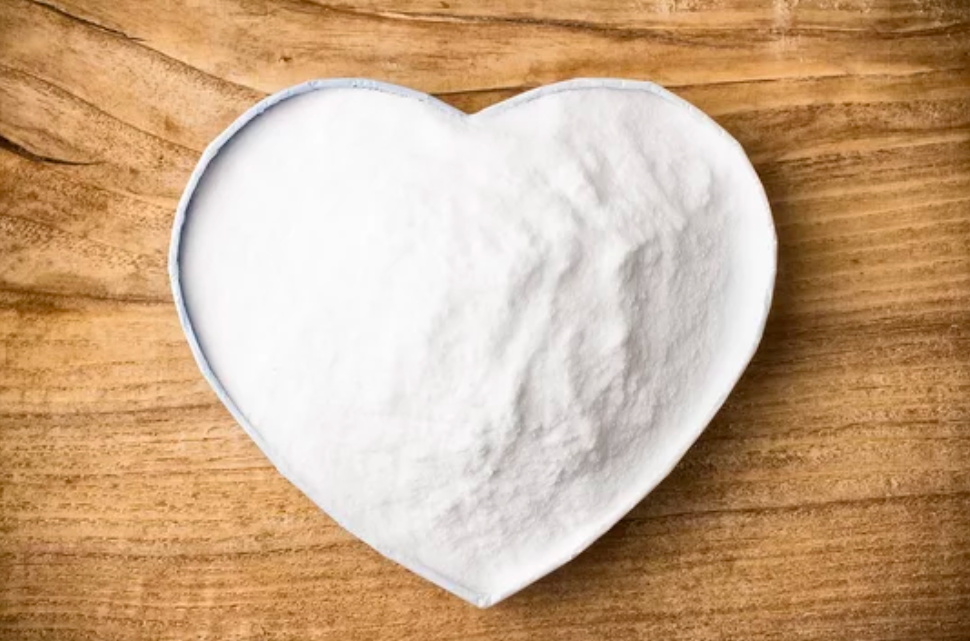

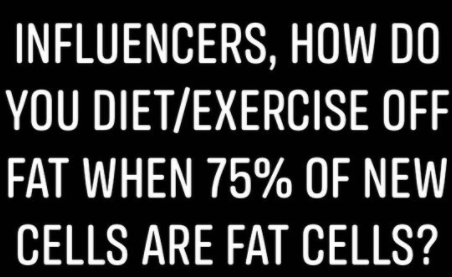
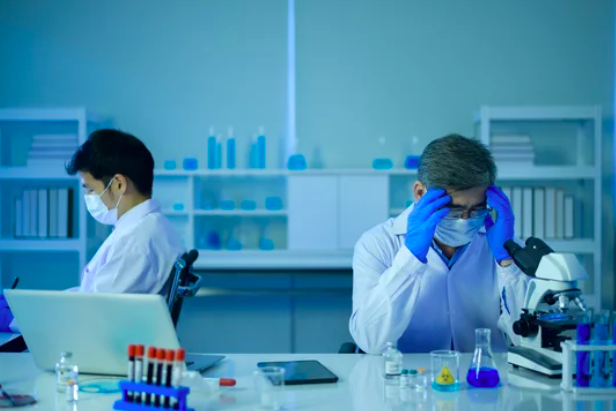
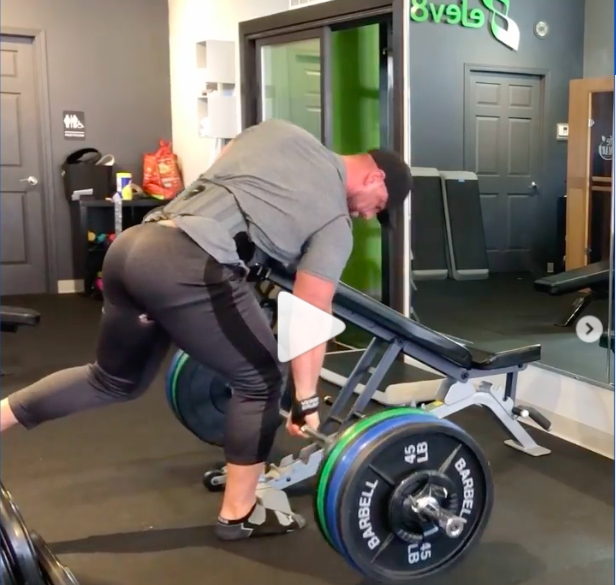
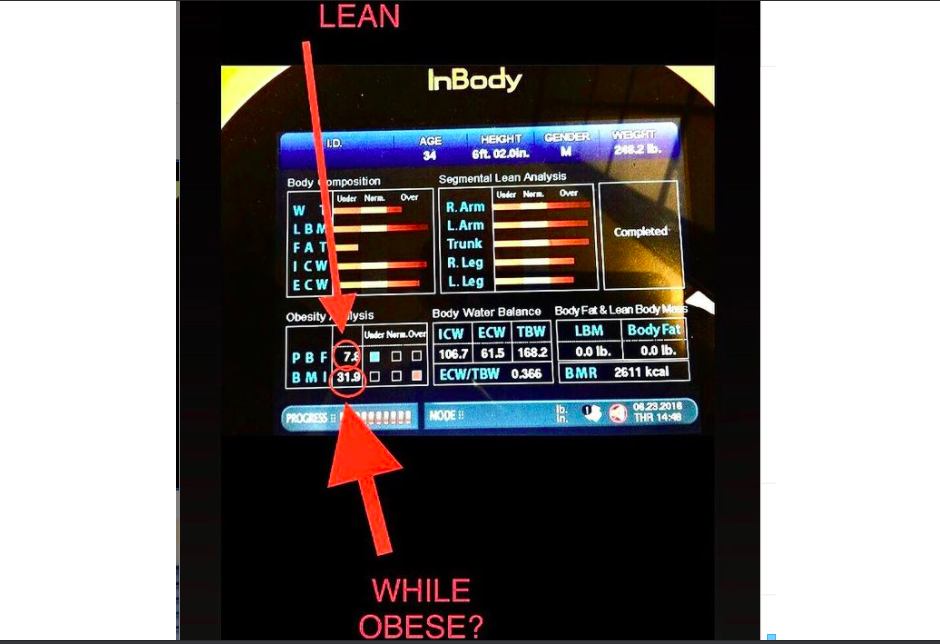
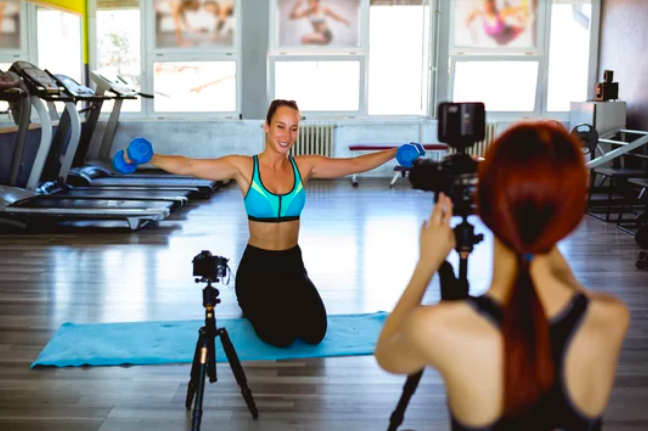
 RSS Feed
RSS Feed
